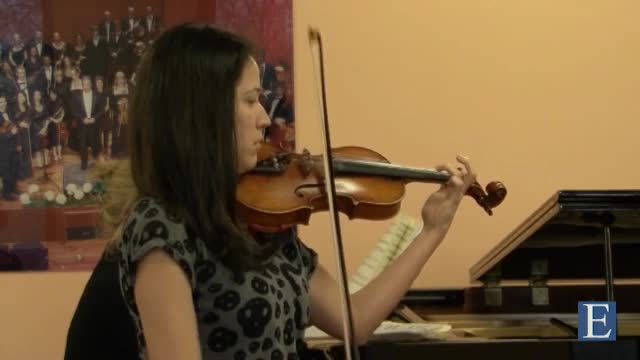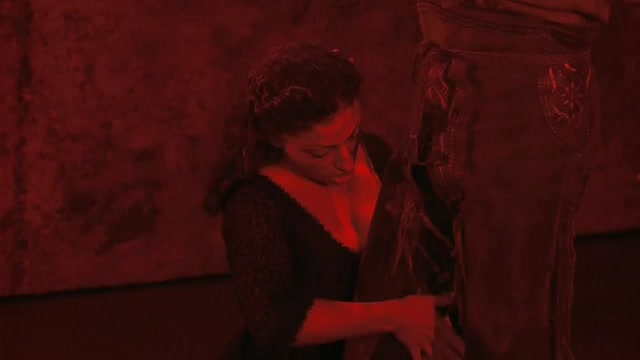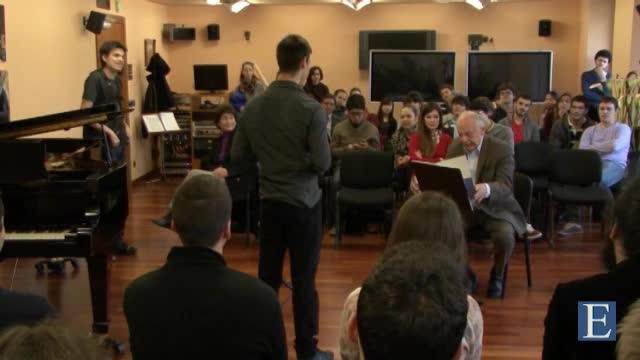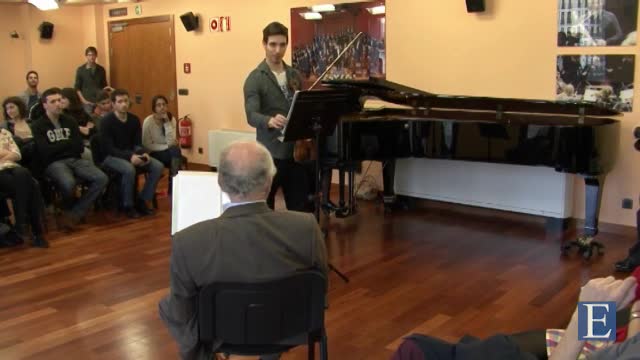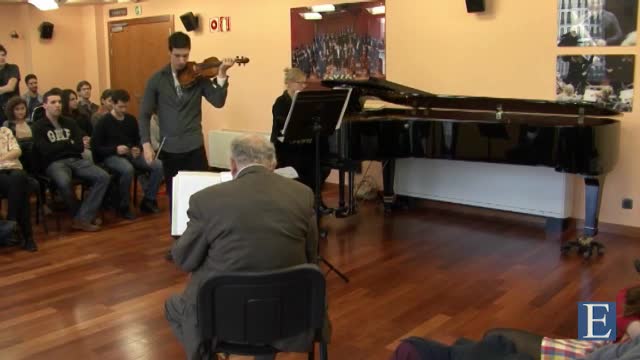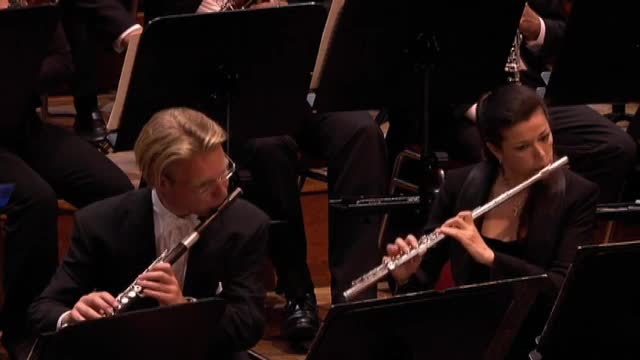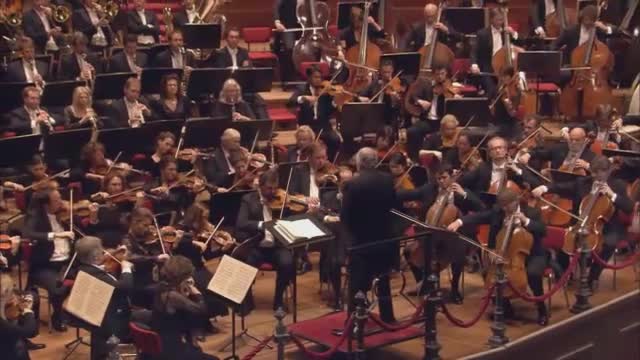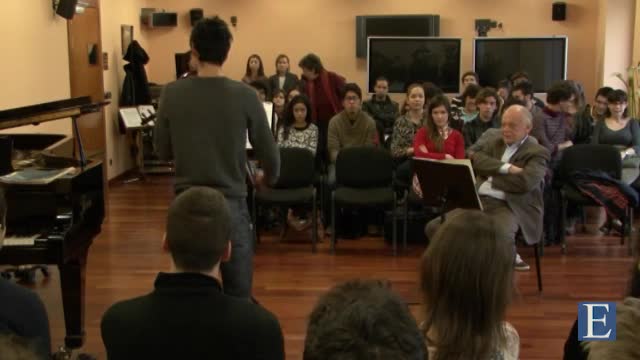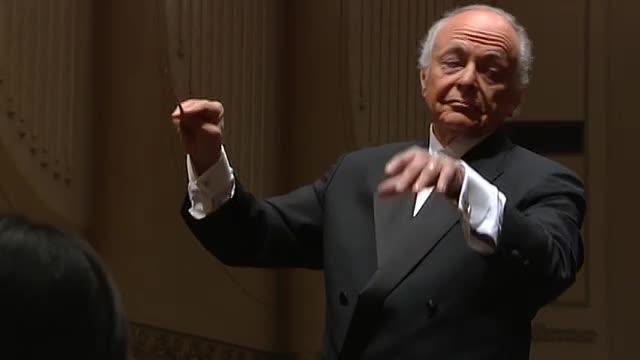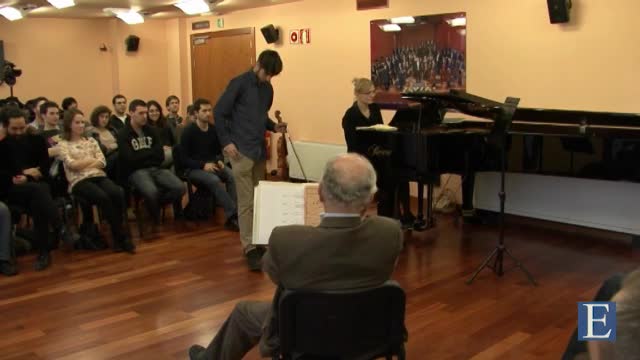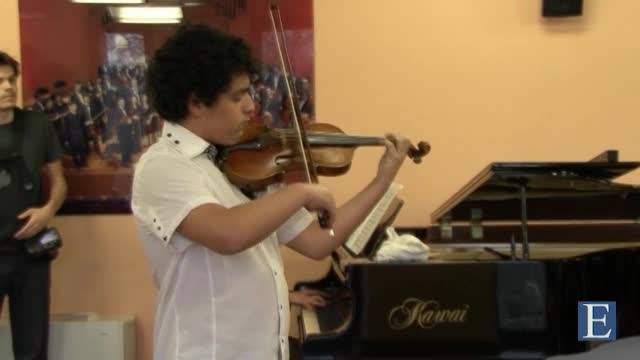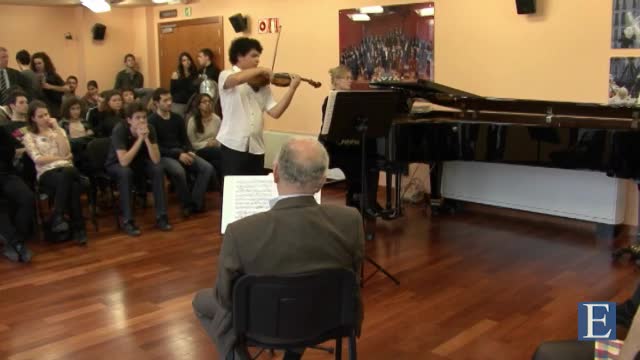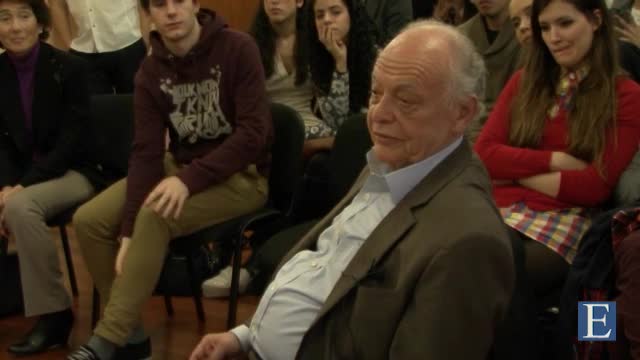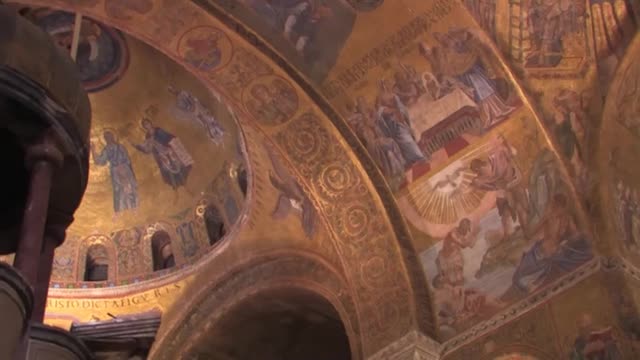
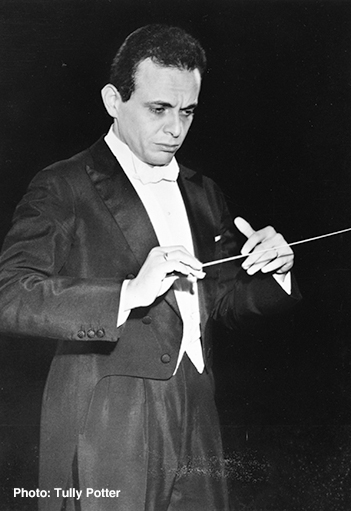
Born in France to American parents (his father was an actor), Lorin Maazel was brought up and educated in America. When he was four years old he was discovered to possess perfect pitch and a photographic memory, and the following year he began to study the violin and piano. Two years later he started to study conducting, with Vladimir Bakaleinikoff in Pittsburgh, and appeared publicly for the first time in 1938, leading a university orchestra: by the next year he was conducting the Interlochen Orchestra at the New York World’s Fair, and the Los Angeles Philharmonic Orchestra, sharing a programme with Leopold Stokowski who dubbed him ‘the prodigy of the century’. Two years later he was invited by Toscanini to conduct the NBC Symphony Orchestra. Maazel made his New York Philharmonic Orchestra conducting début in 1942 at the Lewisohn Stadium, the former summer venue of the orchestra, and in 1943 he made his conducting débuts with the Cleveland and Pittsburgh Symphony Orchestras. He entered the University of Pittsburgh in 1947 to study languages, mathematics, and philosophy; and while a student, he was also a violinist with the Pittsburgh Symphony Orchestra, was its apprentice conductor during the 1949–1950 season, and organised the Fine Arts Quartet of Pittsburgh, in which he played the first violin.
Maazel has graphically described this period in his life: ‘I played violin in the Pittsburgh Symphony for three years to put myself through school. I had the amazing experience of playing under Stokowski, William Steinberg, Leonard Bernstein, Rodzinski, Leinsdorf, Cantelli. I worked all day, had a string quartet, gave violin recitals—and went to night school from eight to midnight to study economics, literature, French and Russian. I was determined to get a university education.’ While he was maintaining this heavy schedule, early evidence of his appetite for hard work, ‘Victor de Sabata heard me conduct a (performance of the) Shostakovich First Symphony, stepping in for somebody. I said I had serious doubts about my qualifications to conduct. He said, “It’s not up to you to doubt, it’s up to you to study. Go to Europe, learn some Italian.”’ As a result Maazel applied for and was awarded a Fulbright Scholarship to study Baroque music in Italy, memorising ten pages of a conversation book to convince the examiners that he spoke Italian. One of them told him, years later, that he left the room convulsed with mirth at the raging ambition of a twenty-one-year-old who successfully bluffed his way to a Fulbright. ‘It changed my life,’ Maazel later recalled.
Having made his European conducting début at Catania in Italy in 1953, Maazel conducted throughout Italy during that decade and worked with several of the orchestras of Italian Radio, appearing also in Austria and Germany and making his first recordings with the Berlin Philharmonic Orchestra for Deutsche Grammophon in 1957. He made his British début in 1960 with the BBC Symphony Orchestra, conducting Mahler to critical acclaim, and his début at the Bayreuth Festival during the same year, with Lohengrin, the first American conductor to appear at the festival. He later returned to Bayreuth to conduct the Ring cycle in 1968 and 1969. Débuts with the Boston Symphony, the Metropolitan Opera (Don Giovanni) and the Salzburg Festival came in 1961, 1962 and 1963 respectively. By now Maazel was in demand as an international guest conductor, appearing throughout Europe (including the former Soviet Union), Australia, North and South America, and Japan. He also made several highly regarded recordings of music by Richard Strauss for the Columbia (UK) label with the Philharmonia Orchestra.
In 1965 Maazel took up his first significant permanent appointment when he became chief conductor of the Deutsche Oper in Berlin and at the same time of the Berlin Radio Symphony Orchestra. His operatic performances were generally praised for their drive, a characteristic that may be heard in his Decca recordings from this time, such as his account of Fidelio. He remained at the Deutsche Oper until 1971, and with the Berlin Radio Symphony Orchestra until 1975, having also in 1972 taken on another major commitment, that of chief conductor of the Cleveland Orchestra in succession to George Szell. During his ten years with this orchestra he recorded an extensive repertoire for both the Decca and Columbia (USA) labels. In parallel he also worked extensively during the 1970s in London and on tour with the Philharmonia Orchestra, of which he was principal guest conductor for a time, conducting memorable accounts of the symphonies of Mahler and Sibelius, all of whose symphonies he recorded with the Vienna Philharmonic Orchestra. Maazel made his début at the Royal Opera House, Covent Garden in 1978 with Verdi’s Luisa Miller, which he recorded for Deutsche Grammophon. He was chief conductor of the Orchestre National de Radio France, the top French radio orchestra, from 1977 to 1982, after which he served as its principal guest conductor until 1988, followed by a further three years as its chief conductor once again.
From September 1982 to 1984, Maazel was general manager and artistic director of the Vienna State Opera, once again the first American to hold such a position. This period ended unexpectedly as a result of adverse local press comment, but it did produce memorable results, such as an outstanding production of Berg’s opera Lulu. Maazel returned to the USA to become music consultant to the Pittsburgh Symphony Orchestra in succession to André Previn, and later served as the orchestra’s chief conductor from 1988 to 1996. Once again in parallel to his work in the USA he developed a close relationship with the orchestra of a European radio network: between 1992 and 2002 he was chief conductor, in succession to Sir Colin Davis, of the Bavarian Radio Symphony Orchestra. In 2000, after returning to conduct the New York Philharmonic Orchestra following a long absence, he was appointed the orchestra’s chief conductor with effect from the start of the 2002–2003 season. On being appointed, the first thing he did was to telephone his ninety-eight-year-old father. ‘He is an old-style native New Yorker to whom there is nothing but New York,’ said Maazel. ‘Everything else I did—Berlin, London, Vienna—he just said, “Ah.” But when I said, “Dad, you wouldn’t believe this, but you remember your old town, New York? Well, I’ve been offered the Philharmonic.” “Ah,” he said, “now that’s a job…”’
In addition to his worldwide activities as a conductor, Maazel composed and played the violin. A musical polymath, his interpretative style leaned towards the dramatic, which generally made for memorable music-making. His performances in both the opera house and the concert hall were consistently exciting. During his earlier years as a conductor, most notably in the 1970s and 1980s, he developed a reputation for confrontational behaviour with orchestral musicians. He has described this period thus: ‘You never achieve the status that you’d like to achieve. I used to try, and I think I used to come across as being somewhat fanatical and mad because I was trying to achieve perfection. There was a whole period, about a decade, when I was always dissatisfied—the 1970s.’ He appeared to have mellowed considerably, commenting ‘…it takes quite a long time before you become humble enough to realise that the profession is a learning process which never stops. If you really feel that way, then you’ll move on.’
Technically Maazel was always extremely assured, with an idiosyncratic, rather angular, conducting style, which nonetheless conveyed his requirements clearly. Like a previous, highly influential conductor, Furtwängler, he had convincing views on the nature of performance and interpretation: ‘Interpretation is just that: re-creation in contemporary terms. It follows… that tempo and “approach” are but means—and means of the moment. A tempo is simply the speed at which a musician feels that a given composition may best come alive under the immediate conditions (acoustics, temperature, capacity of the player and instrument, the “mood” of public, occasion, performer, and many more). This is the task of the performer and his joy—to re-create in relative conditions the absolute of the complete mystical experience.’
Maazel’s discography is enormous, and includes releases on all the major multi-national labels. Of especial interest is his cycle of the symphonies of Gustav Mahler with the Vienna Philharmonic Orchestra, an orchestra with which Mahler himself was closely associated. The Vienna State Opera and the New York Philharmonic Orchestra are two further institutions with which both conductors have had formal links. When asked in interview if he gave thought to his predecessors and the tradition associated with the New York Philharmonic Orchestra, Maazel revealingly replied, ‘I certainly do. I wouldn’t be taking my position seriously if I didn’t think about the honour it is to be in that roll of masters. I do try to be worthy of the calling.’
© Naxos Rights International Ltd. — David Patmore (A–Z of Conductors, Naxos 8.558087–90).
